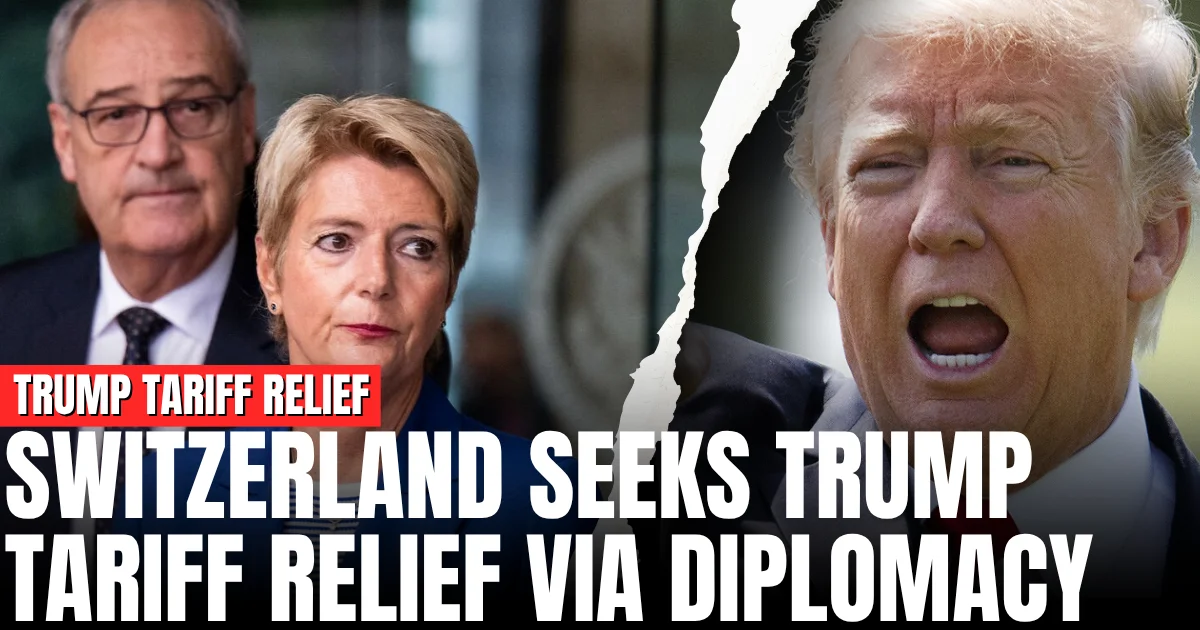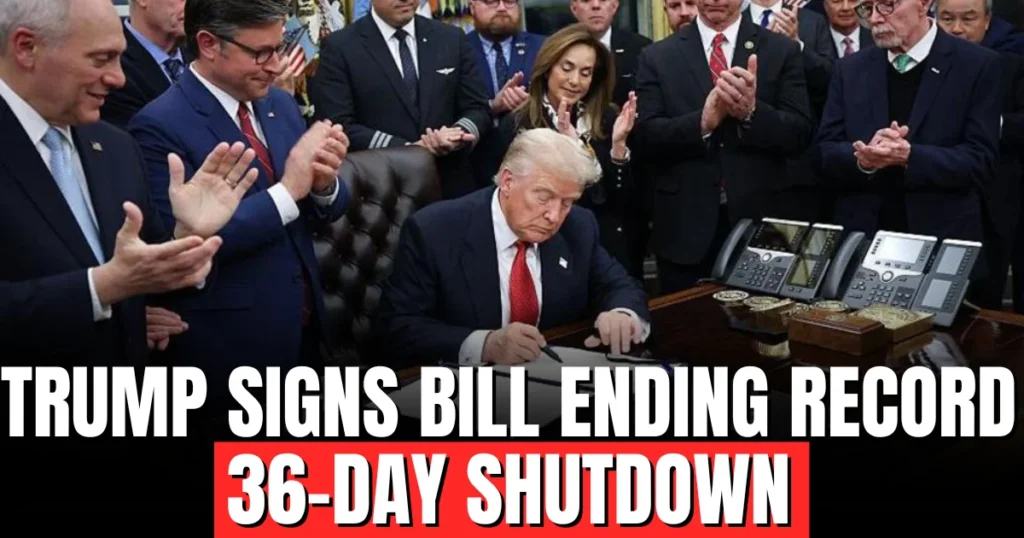Switzerland pursues exemption from 25% Trump tariffs through luxury gifts, high-level talks, emphasizing $450B US investment. Will charm offensive work? Analysis!
Table of Contents
Switzerland Pursues Tariff Reduction Through Strategic Diplomatic Engagement with Trump Administration
Swiss Officials Leverage Luxury Gifts and High-Level Meetings to Negotiate Relief from US Trade Penalties Threatening Bilateral Commerce
Switzerland has embarked on an intensive diplomatic campaign to secure exemptions or reductions from Trump administration tariffs threatening billions in bilateral trade, employing a combination of high-level meetings, strategic gifts, and appeals to shared economic interests. The Swiss “charm offensive” includes presentations of luxury timepieces, invitations to exclusive Alpine retreats, and emphasizing Switzerland’s role as a major investor in the U.S. economy.
The Trump administration’s 25% tariffs on imported goods from numerous countries, including Switzerland, threaten to devastate Swiss exports of watches, pharmaceuticals, machinery, and precision instruments valued at over $40 billion annually to the American market. Swiss officials describe the levies as “crippling” for an export-dependent economy where the United States represents the second-largest trading partner after the European Union.
Swiss Economy Minister Guy Parmelin led a delegation to Washington last week that included CEOs from major Swiss corporations and representatives from the watch industry, pharmaceutical sector, and financial services. The mission featured presentations emphasizing Switzerland’s $450 billion in U.S. investments and 500,000 American jobs supported by Swiss companies.
“Switzerland and the United States share deep economic ties and common values,” Parmelin stated during meetings with Commerce Secretary Howard Lutnick. “These tariffs would harm workers and consumers in both our nations. We’re seeking a fair solution that recognizes our unique relationship and mutual economic interests.”
The diplomatic push reflects growing global concern about Trump’s aggressive use of tariffs as both economic policy and negotiating leverage, with numerous countries seeking bilateral deals to avoid or reduce trade penalties.
Understanding the Tariff Threat
What Trump Imposed
Tariff Structure:
- 25% levy on most imported goods from countries without exemptions
- Applied to Swiss watches, machinery, pharmaceuticals, chemicals
- Based on “national security” and “reciprocal trade” justifications
- Implemented through executive authority
Swiss Exports Affected:
- Watches and jewelry: $2.8 billion annually (luxury timepieces heavily impacted)
- Pharmaceuticals: $18.6 billion (including generic drugs and biologics)
- Machinery and equipment: $12.4 billion
- Chemicals: $6.2 billion
- Total at risk: $40+ billion
Economic Impact Estimates:
Swiss National Bank projects tariffs could:
- Reduce GDP growth by 0.8-1.2%
- Eliminate 35,000-50,000 jobs
- Decrease exports by 15-20%
- Trigger currency appreciation (harming competitiveness)
Trump’s Rationale
Administration Arguments:
Trade Imbalance:
U.S. trade deficit with Switzerland: $38 billion (2024), which Trump characterizes as “unfair” despite Switzerland’s massive U.S. investments.
Reciprocal Tariffs:
Trump claims Switzerland maintains barriers to American goods, justifying “reciprocal” U.S. tariffs.
Negotiating Leverage:
Tariffs serve as pressure for broader trade concessions and investment commitments.
The Swiss Charm Offensive
Diplomatic Strategy
High-Level Engagement:
Presidential Outreach:
Swiss President Viola Amherd spoke directly with Trump, extending personal invitation to visit Switzerland and emphasizing bilateral friendship.
Corporate Diplomacy:
CEOs from Novartis, Roche, Nestlé, UBS, Credit Suisse accompanied government officials, highlighting U.S. operations and job creation.
Congressional Lobbying:
Swiss representatives met with key senators and representatives, emphasizing economic impact on their states/districts.
The “Golden” Gifts
Strategic Presents:
Luxury Timepieces:
Swiss delegation presented Trump and senior officials with custom Patek Philippe watches valued at 50,000−50,000−100,000 each—raising ethics questions but following diplomatic gift protocols.
Alpine Retreat Invitations:
Offered Trump use of exclusive Swiss mountain chalet and potential summit hosting opportunities in picturesque settings.
Economic Data Packages:
Comprehensive presentations showing:
- State-by-state Swiss investment impact
- American jobs supported by Swiss companies
- Mutual economic benefits
- Comparison to other trading partners
Economic Arguments
Key Swiss Talking Points:
Investment Leadership:
Switzerland is 7th largest investor in U.S. economy ($450 billion total), ahead of many larger countries.
Job Creation:
Swiss companies directly employ 500,000 Americans with average wages 18% above national median.
Innovation Partnership:
Joint research in pharmaceuticals, technology, finance creates mutual competitive advantages.
Trade Balance Context:
Swiss investments in U.S. far exceed trade deficit, creating net positive relationship.
Why Switzerland Matters
Unique Bilateral Relationship
Economic Interdependence:
U.S. Benefits from Switzerland:
- Pharmaceutical R&D and manufacturing
- Financial services hub for U.S. firms
- Technology innovation partnerships
- High-quality investment capital
Swiss Dependence on U.S.:
- Second-largest export market
- Critical for pharmaceutical sector
- Luxury goods market (watches, chocolates)
- Financial services integration
Strategic Importance
Geopolitical Considerations:
Neutral Mediator:
Switzerland provides diplomatic hosting for U.S. negotiations (Iran, Russia, others).
Financial Hub:
Swiss banking and financial infrastructure supports U.S. dollar system.
Intelligence Cooperation:
Quiet security partnerships despite formal neutrality.
Challenges to Success
Trump’s Negotiating Style
Historical Patterns:
Transactional Approach:
Trump typically demands specific, measurable concessions rather than accepting general arguments.
Public Victories:
Needs to claim “wins” showing tariffs worked as leverage.
Unpredictability:
Previous exemptions granted (and revoked) based on unclear criteria.
Competing Interests
Domestic Political Pressure:
Protectionist Base:
Trump supporters want tough trade stance maintained.
Industry Lobbying:
American watch manufacturers, pharmaceutical companies seeking protection from Swiss competition.
Deficit Hawks:
Focus on reducing trade imbalances regardless of investment flows.
International Context
Other Countries’ Approaches
Varied Strategies:
European Union:
Threatening retaliatory tariffs on American goods (confrontational approach).
Japan:
Emphasizing security alliance and manufacturing investments.
South Korea:
Offered increased defense purchases and market access deals.
Canada/Mexico:
Leveraging USMCA trade agreement protections.
Switzerland’s Approach:
Hybrid strategy combining economic data, personal diplomacy, and strategic gifts—reflecting small country necessity for creative negotiation.
What’s at Stake
For Switzerland
Economic Costs:
- Potential recession if tariffs maintained
- Job losses in export sectors
- Currency appreciation harming competitiveness
- Investor confidence decline
Strategic Concerns:
- Reduced U.S. market access
- Competitive disadvantage vs. countries securing exemptions
- Precedent for future trade disputes
For the United States
Consumer Impact:
- Higher prices for Swiss pharmaceuticals (including generics)
- Luxury watch price increases
- Machinery and equipment costs up
- Inflation pressure
Investment Risk:
- Swiss companies may reduce U.S. investment if relationship deteriorates
- Job losses in states hosting Swiss operations
- Financial services disruption
Diplomatic Costs:
- Strained relationship with reliable partner
- Reduced Swiss willingness to facilitate U.S. diplomatic initiatives
- International reputation for unpredictable trade policy
Likely Outcomes
Possible Scenarios
Full Exemption (30% probability):
Switzerland secures complete tariff exemption through successful diplomacy.
Partial Relief (45% probability):
Reduced tariffs (10-15%) or sector-specific exemptions (pharmaceuticals protected, watches still taxed).
Conditional Agreement (20% probability):
Exemptions contingent on Swiss concessions (increased U.S. goods purchases, regulatory harmonization).
No Relief (5% probability):
Tariffs maintained despite Swiss efforts, forcing litigation or acceptance.
Probability estimates based on trade policy analyst assessments
Frequently Asked Questions (FAQs)
Why is Switzerland trying to reduce Trump’s tariffs?
Trump administration tariffs of 25% on Swiss imports threaten over 40billioninannualexportsincludingwatches(40billioninannualexportsincludingwatches(2.8B), pharmaceuticals (18.6B),andmachinery(18.6B),andmachinery(12.4B). Swiss economists estimate these tariffs could reduce GDP growth by 1%, eliminate 35,000-50,000 jobs, and decrease exports by 15-20%. As an export-dependent economy where the U.S. is the second-largest trading partner, Switzerland faces potentially severe economic damage without tariff relief or exemptions.
What is Switzerland offering to get tariff exemptions?
Switzerland’s strategy includes emphasizing $450 billion in U.S. investments supporting 500,000 American jobs, high-level diplomatic engagement including presidential conversations, corporate CEO participation showing economic interdependence, strategic gifts including luxury watches, and invitations to exclusive Alpine venues. Swiss officials argue their massive U.S. investment far outweighs the trade deficit, creating net positive relationship that tariffs would damage for both countries.
Did Swiss officials actually give Trump expensive watches?
Reports indicate Swiss delegation presented Trump and senior officials with luxury Swiss timepieces valued at 50,000−50,000−100,000 each, following diplomatic gift protocols. While raising ethics questions, such gifts are legal under foreign official gift rules if properly disclosed and valued. The watches symbolize Swiss craftsmanship while serving practical diplomatic purpose of building personal rapport—standard practice in international diplomacy though scrutinized given Trump’s business background.
How likely is Switzerland to get tariff relief?
Trade policy analysts estimate 45% probability of partial relief (reduced tariffs or sector-specific exemptions), 30% for full exemption, 20% for conditional agreements requiring Swiss concessions, and 5% for no relief. Switzerland’s strong case—massive U.S. investment, job creation, lack of direct security threat—works in its favor, but Trump’s transactional negotiating style and need to show tariffs work as leverage create uncertainty. Previous tariff exemptions have been granted unpredictably.
What happens if Switzerland doesn’t get tariff exemptions?
Without relief, Switzerland faces potential recession, significant job losses in export sectors, currency appreciation harming broader competitiveness, and reduced investor confidence. Swiss companies might reduce U.S. investments and shift operations to other markets. The country could join EU retaliatory measures, pursue WTO dispute resolution (multi-year process), or accept tariffs and adjust economy accordingly. Pharmaceutical sector particularly vulnerable given U.S. market importance for Swiss drugmakers like Novartis and Roche.
Conclusion: High-Stakes Diplomacy in Era of Trade Uncertainty
Switzerland’s intensive diplomatic campaign to secure tariff relief from the Trump administration represents the challenges facing smaller trading nations navigating an international trade system increasingly characterized by bilateral deal-making rather than multilateral rules. The Swiss approach—combining economic data, strategic gifts, high-level engagement, and appeals to mutual interests—reflects sophisticated understanding of Trump’s transactional negotiating style.
Whether these efforts succeed depends on factors beyond Swiss control: Trump’s domestic political calculations, competing lobbying pressures, broader trade strategy, and unpredictable decision-making patterns. Switzerland’s strong case—massive U.S. investment, job creation, lack of security concerns—should theoretically warrant favorable treatment, but previous tariff decisions suggest logic alone doesn’t determine outcomes.
For Switzerland, the stakes couldn’t be higher. An export-dependent economy faces potential recession and significant job losses if tariffs persist. Yet the country’s limited geopolitical leverage means creative diplomacy, not threats or retaliation, represents the only viable path to relief.
For the broader international system, Switzerland’s experience demonstrates how Trump’s tariff policies have transformed trade relations from rules-based frameworks to personalized negotiations where charm offensives, luxury gifts, and bilateral relationship management matter as much as economic fundamentals.
The outcome will be closely watched by other countries seeking similar relief, providing lessons about what works—and what doesn’t—in securing favorable treatment from an administration that views tariffs as both economic policy and negotiating leverage. For now, Switzerland waits, hoping its golden touch proves persuasive.

